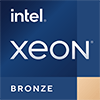
Apple A9 Benchmark, Test and specs
Last updated:
The Apple A9 has 2 cores with 2 threads and is based on the 9. gen of the Apple A series series. The processor was released in Q3/2015. The Apple A9 scores 558 points in the Geekbench 5 single-core benchmark. In the Geekbench 5 multi-core benchmark, the result is 1,024 points.

| Name: | Apple A9 |
|---|---|
| Family: | Apple A series (22) |
| CPU group: | Apple A9/A9X (2) |
| Architecture: | A9 |
| Segment: | Mobile |
| Generation: | 9 |
| Predecessor: | Apple A8 |
| Successor: | Apple A10 Fusion |
CPU Cores and Base Frequency
The Apple A9 has 2 CPU cores and can calculate 2 threads in parallel. The clock frequency of the Apple A9 is 1.85 GHz. The number of CPU cores greatly affects the speed of the processor and is an important performance indicator.
| CPU Cores / Threads: | 2 / 2 |
|---|---|
| Core architecture: | normal |
| Cores: | 2x Twister |
| Hyperthreading / SMT: | No |
|---|---|
| Overclocking: | No |
| Frequency: | 1.85 GHz |
| Turbo Frequency (1 Core): | -- |
| Turbo Frequency (2 Cores): | -- |
Internal Graphics
The Apple A9 has integrated graphics, called iGPU for short. Specifically, the Apple A9 uses the Apple A9, which has 192 texture shaders and 24 execution units. The iGPU uses the system's main memory as graphics memory and sits on the processor's die.
| GPU name: | Apple A9 |
|---|---|
| GPU frequency: | 0.65 GHz |
| GPU (Turbo): | No turbo |
| Compute units: | 24 |
| Shader: | 192 |
| Hardware Raytracing: | No |
| Release date: | Q3/2015 |
| Max. displays: | 1 |
|---|---|
| Generation: | 6 |
| Direct X: | -- |
| Technology: | 16 nm |
| Max. GPU Memory: | 4 GB |
| Frame Generation: | No |
Hardware codec support
A photo or video codec that is accelerated in hardware can greatly accelerate the working speed of a processor and extend the battery life of notebooks or smartphones when playing videos.
| h265 / HEVC (8 bit): | No |
|---|---|
| h265 / HEVC (10 bit): | No |
| h264: | Decode |
| VP8: | Decode |
| VP9: | No |
| AV1: | No |
|---|---|
| AVC: | Decode |
| VC-1: | Decode |
| JPEG: | Decode / Encode |
Memory & PCIeThe processor can use up to 2 GB memory in 1 (Single Channel) memory channels. The maximum memory bandwidth is 25.6 GB/s. The memory type as well as the amount of memory can greatly affect the speed of the system. |
|
| Memory type: | Memory bandwidth: |
|---|---|
| LPDDR4-3200 | 25.6 GB/s |
| Max. Memory: | 2 GB |
| Memory channels: | 1 (Single Channel) |
| ECC: | No |
| PCIe: | |
| PCIe Bandwidth: | -- |
Thermal ManagementThe thermal design power (TDP for short) of the processor is 5 W. The TDP specifies the necessary cooling solution that is required to cool the processor sufficiently. The TDP usually gives a rough idea of the actual power consumption of the CPU. |
|
|---|---|
| TDP (PL1 / PBP): | 5 W |
| TDP (PL2): | -- |
| TDP up: | -- |
| TDP down: | -- |
| Tjunction max.: | -- |
Technical details
The Apple A9 is made in 16 nm. The smaller the manufacturing process of a CPU, the more modern and energy-efficient it is. Overall, the processor has 7.00 MB cache. A large cache can greatly speed up the processor's speed in some cases such as games.
| Technology: | 16 nm |
|---|---|
| Chip design: | Chiplet |
| Socket: | -- |
| L2-Cache: | 3.00 MB |
| L3-Cache: | 4.00 MB |
| AES-NI: | No |
| Operating systems: | iOS |
| Virtualization: | None |
|---|---|
| Instruction set (ISA): | Armv8-A (64 bit) |
| ISA extensions: | -- |
| Release date: | Q3/2015 |
| Release price: | -- |
| Part Number: | -- |
| Documents: | -- |
Rate this processor
Benchmark results

The benchmark results for the Apple A9 have been carefully checked by us. We only publish benchmark results that have been created by us or that have been submitted by a visitor and then checked by a team member. All results are based on and fullfill our benchmark guidelines.
Geekbench 5, 64bit (Single-Core)
Geekbench 5 is a cross plattform benchmark that heavily uses the systems memory. A fast memory will push the result a lot. The single-core test only uses one CPU core, the amount of cores or hyperthreading ability doesn't count.

|
Intel Celeron 3965U
2C 2T @ 2.20 GHz |
||

|
Intel Core i3-5020U
2C 4T @ 2.20 GHz |
||

|
Intel Core i3-3250T
2C 4T @ 3.00 GHz |
||
|
|
Apple A9
2C 2T @ 1.85 GHz |
||

|
Intel Xeon Bronze 3204
6C 6T @ 1.90 GHz |
||

|
Qualcomm Snapdragon 732G
8C 8T @ 2.30 GHz |
||

|
AMD A10-9700
4C 4T @ 3.80 GHz |
||
Geekbench 5, 64bit (Multi-Core)
Geekbench 5 is a cross plattform benchmark that heavily uses the systems memory. A fast memory will push the result a lot. The multi-core test involves all CPU cores and taks a big advantage of hyperthreading.

|
Samsung Exynos 850
8C 8T @ 2.00 GHz |
||

|
Intel Pentium G2010
2C 2T @ 2.80 GHz |
||

|
Qualcomm Snapdragon 653
8C 8T @ 1.95 GHz |
||
|
|
Apple A9
2C 2T @ 1.85 GHz |
||

|
Intel Pentium 3550M
2C 2T @ 2.30 GHz |
||

|
AMD Athlon II X4 600e
4C 4T @ 2.20 GHz |
||

|
Intel Core i3-2348M
2C 4T @ 2.30 GHz |
||
Geekbench 6 (Single-Core)
Geekbench 6 is a benchmark for modern computers, notebooks and smartphones. What is new is an optimized utilization of newer CPU architectures, e.g. based on the big.LITTLE concept and combining CPU cores of different sizes. The single-core benchmark only evaluates the performance of the fastest CPU core, the number of CPU cores in a processor is irrelevant here.

|
Intel Core i5-2500
4C 4T @ 3.70 GHz |
||

|
Intel Core i5-2500S
4C 4T @ 3.70 GHz |
||

|
Intel Core i7-2620M
2C 4T @ 3.40 GHz |
||
|
|
Apple A9
2C 2T @ 1.85 GHz |
||

|
Intel Core i5-3380M
2C 4T @ 3.60 GHz |
||

|
Intel Xeon E5-2650 v2
8C 16T @ 3.40 GHz |
||

|
Intel Core i3-5005U
2C 4T @ 2.00 GHz |
||
Geekbench 6 (Multi-Core)
Geekbench 6 is a benchmark for modern computers, notebooks and smartphones. What is new is an optimized utilization of newer CPU architectures, e.g. based on the big.LITTLE concept and combining CPU cores of different sizes. The multi-core benchmark evaluates the performance of all of the processor's CPU cores. Virtual thread improvements such as AMD SMT or Intel's Hyper-Threading have a positive impact on the benchmark result.

|
Intel Pentium G3250T
2C 2T @ 2.80 GHz |
||

|
Intel Pentium G3440T
2C 2T @ 2.80 GHz |
||

|
Intel Core i3-3120M
2C 4T @ 2.50 GHz |
||
|
|
Apple A9
2C 2T @ 1.85 GHz |
||

|
Qualcomm Snapdragon 652
8C 8T @ 1.80 GHz |
||

|
Intel Celeron G1850
2C 2T @ 2.90 GHz |
||

|
Intel Core i3-4010Y
2C 4T @ 1.30 GHz |
||
iGPU - FP32 Performance (Single-precision GFLOPS)
The theoretical computing performance of the internal graphics unit of the processor with simple accuracy (32 bit) in GFLOPS. GFLOPS indicates how many billion floating point operations the iGPU can perform per second.

|
Intel Core i5-2415M
Intel HD Graphics 3000 @ 1.30 GHz |
||

|
Intel Core i5-2435M
Intel HD Graphics 3000 @ 1.30 GHz |
||

|
Intel Core i5-2520M
Intel HD Graphics 3000 @ 1.30 GHz |
||
|
|
Apple A9
Apple A9 @ 0.65 GHz |
||

|
AMD A6-5400K
AMD Radeon HD 7540D @ 0.64 GHz |
||

|
AMD A6-5400B
AMD Radeon HD 7540D @ 0.64 GHz |
||
|
|
HiSilicon Kirin 960S
ARM Mali-G71 MP8 @ 0.90 GHz |
||
AnTuTu 8 Benchmark
The AnTuTu 8 Benchmark measures the performance of a SoC. AnTuTu benchmarks the CPU, GPU, Memory as well as the UX (User Experience) by simulating browser and app usage. AnTuTu can benchmark any ARM CPU that runs under Android or iOS. Devices may not be directly compareable if the benchmark has been performed under different operating systems.
In the AnTuTu 8 benchmark, the single-core performance of a processor is only slightly weighted. The evaluation consists of the multi-core performance of the processor, the speed of the RAM and the performance of the internal graphics.
In the AnTuTu 8 benchmark, the single-core performance of a processor is only slightly weighted. The evaluation consists of the multi-core performance of the processor, the speed of the RAM and the performance of the internal graphics.

|
Qualcomm Snapdragon 662
8C 8T @ 2.00 GHz |
||

|
Qualcomm Snapdragon 670
8C 8T @ 2.00 GHz |
||

|
Samsung Exynos 8895
8C 8T @ 2.30 GHz |
||
|
|
Apple A9
2C 2T @ 1.85 GHz |
||

|
Qualcomm Snapdragon 665
8C 8T @ 2.00 GHz |
||

|
Samsung Exynos 9610
8C 8T @ 2.30 GHz |
||

|
MediaTek Helio P60
8C 8T @ 2.00 GHz |
||
Estimated results for PassMark CPU Mark
Some of the CPUs listed below have been benchmarked by CPU-monkey. However the majority of CPUs have not been tested and the results have been estimated by a CPU-monkey’s secret proprietary formula. As such they do not accurately reflect the actual Passmark CPU mark values and are not endorsed by PassMark Software Pty Ltd.

|
AMD A4-5100
4C 4T @ 1.55 GHz |
||

|
AMD Phenom II X2 555
2C 2T @ 3.20 GHz |
||

|
AMD Phenom II X2 B57
2C 2T @ 3.20 GHz |
||
|
|
Apple A9
2C 2T @ 1.85 GHz |
||

|
AMD A8-3500M
4C 4T @ 2.40 GHz |
||

|
Intel Core i7-3517U
2C 4T @ 2.50 GHz |
||

|
Intel Core i3-3240T
2C 4T @ 2.90 GHz |
||
Benchmarks

Geekbench 5 (SC)
2,479 entries
2,479 entries

Geekbench 5 (MC)
2,452 entries
2,452 entries

Geekbench 6 (SC)
1,745 entries
1,745 entries

Geekbench 6 (MC)
1,693 entries
1,693 entries

FP32 SP (iGPU)
2,010 entries
2,010 entries

AnTuTu 8 Benchmark
118 entries
118 entries

PassMark CPU-Mark
2,386 entries
2,386 entries
Popular comparisons
back to index







